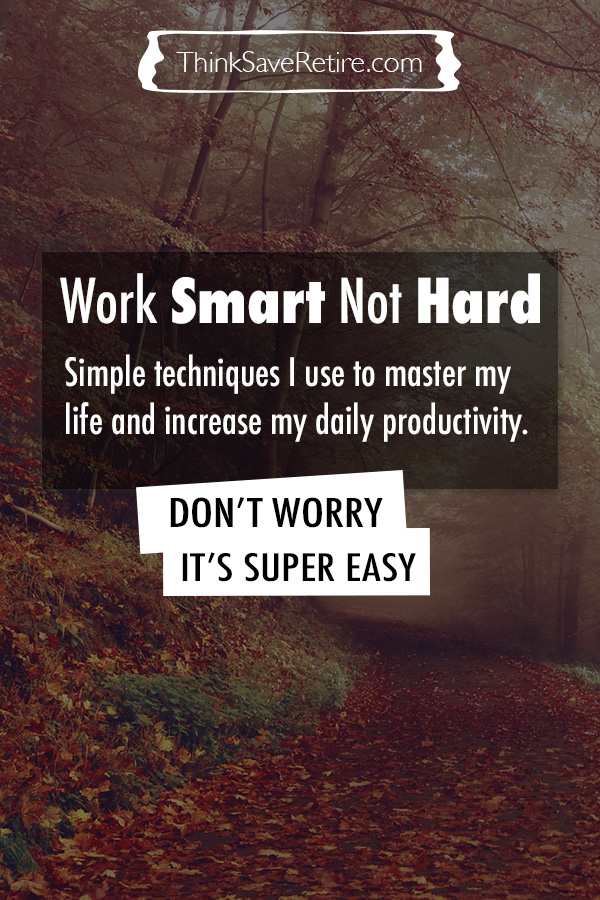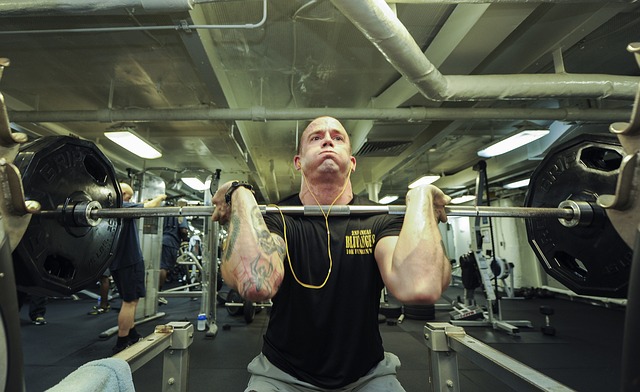Six simple techniques I use to work smarter, not harder
Over the course of my working life in an office, I learned something quite profound: hard work plays second fiddle to smart work. Work smarter, not harder. Get more done in less time.

Over the course of my working life in an office, I learned something quite profound: hard work plays second fiddle to smart work. If you find that you just don't have enough time during the day to get everything done, then it's possible that you're simply way too busy and may want to slow down. Or, it could indicate that your focus on working hard is sentencing yourself to hours of additional work.

Ditch the idea that you must be ultra-productive, because you don't. That tends to burn people out over time.
I have found that I am most productive when I follow six very simple techniques to work smart. I don't care about working "hard", being always busy or doing menial tasks for the sake of "doing something". Mindless productivity isn't helpful.
The truth of the matter is I'm either 100% all-in and completing a necessary and measurable work task, or I'm not doing any work at all. I love every minute of it. Here's how I do it.
Six techniques I use to work smart, not hard
Over the years, I have mastered these six techniques to keep myself active and productive at work, but not overworked and burned out. The difference has been profound and has fundamentally changed my working career, for the better.
1. I manage expectations
At one point early in my career, I would accept a task and get it done as quickly as possible, no matter the cost. If I did something wrong or incomplete, I'd wait for someone to point it out and I would proceed to complete the task again, and of course, as quickly as possible.
I soon learned something interesting: the more work I completed, the more work that would come my way. I was mindlessly and meticulously creating an expectation that I would blindly accept any and all work thrown in my direction, and that quickly created a situation where I felt fatigued, stressed and burned out.
I realized that I was given so much work because I created the expectation that I would simply do anything. The problem was not in the demands of the job, but in how I managed my perception in the office. To fix the problem, I began to manage expectations of me much better.
Today, I take my time with each work task. It might take me 10x as long to do the same task today as it might have years ago, but my stress level is virtually non-existent, I do better and more dependable work and my ability to breath and relax during the day - without the burden of a long list of tasks - helps keep me focused.
The expectation that I want people to have of me is simple: does not over-burden himself, does awesome work and is dependable to complete tasks the right way, the first time. I now leave the part about getting work done as fast as possible to someone else.
2. I take breaks / naps
Taking breaks throughout the day (and yes, even naps!) has been proven to positively effect productivity. Hell, there are companies like Buffer who are "pro nap" and plainly encourage their staff to rest their brains throughout the day, which helps the mind to process through the happenings of the day and, of course, rest a bit. Even better, other studies have suggested that naps help the brain to retain information and may even be good for your heart.
related post: How slowing down can take your life to the next level

Taking breaks and/or naps throughout the day has helped significantly to keep me alert and mentally "there" during the day, especially through the afternoon hours as the work day is drawing to a close. I am more creative and energized after these breaks and generally feel less like asking myself "is it time to quit, yet?". To work smart, regular breaks are essential.
3. I am most productive in blocks of time
By far, I do my best work in particular blocks of time throughout the day, starting from the moment that I sit down in front of my computer in the morning. In fact, I plan for this. I like to call these periods of time blocks of productivity.
Usually, my first block of productivity hits me when I begin work in the morning and lasts for a few hours. Like I've written about before, both my wife and I get up at the crack of dawn to get our day started early, so by the time that 10am rolls around, my work day is already half over. I usually get another couple of hours during late morning or early afternoon, and another hour or two in the late afternoon.
I never try to force myself to work in-between blocks of productivity because I work slower, less creative and uninspired. There's nothing smart about that. In fact, I have found that working the traditional 8 to 10-hour days to be one of the most inefficient uses of time possible. It ignores people's natural working rhythms.
What am I doing when I'm not engaged with a work-related task? I'm taking a break. I'm writing. I'm working with my camera. More or less, I am doing things that truly interest me, which helps me to re-engage my work-related tasks much easier. These are the moments when I recharge the batteries inside me. Works every time.
4. I never accept ambiguous tasks
Perhaps the biggest time-saver that I've learned over the years is to never accept a task that I do not completely understand. In an earlier life, I would gladly accept tasks that were unclear to me and attempt to understand them later. Worse, sometimes I would choose to meander my way through confusing requirements (or no requirements at all!) without asking for clarification, opting instead to complete the task knowing full well that I was probably doing it wrong and would require re-work.
We all work smarter by knowing the task in front of us. Today, I insist on completely understanding the task before choosing to begin work, and any and all ambiguous tasks are clarified before I start. I work in a technical field, and a technical specification document (or "tech spec", for short) is used to document the requirements of a task - in other words, what the task is about, what needs to be done and what the finished product should look like/do/whatever).
Unless this document exists for each task, I will not work on that task. I do make exceptions in emergency situations, but it must truly be an emergency and not a "schedule conflict" caused by incompetent management.
5. I prioritize time away from the computer
I hit on this point earlier in the discussion about breaks and naps, but I actually take my break time a little bit more seriously than simply time spent in-between blocks of productivity. I prioritize time away from my work. I like to go to the gym mid-morning to workout, which allows me to completely focus on what I'm doing and get into a comfortable "zen state". It allows me to truly think about how I feel - about fitness, my health and my life in general.

I consider this a form of meditation. Every time I lift a weight, I am completely connected with how it is stressing the muscle. Different angles. Different weights. Changing hand positions. Faster. Slower. Eyes open. Eyes closed. It all counts. This is how I get in the moment and zone out by zoning into what I am doing.
When I return to the computer for work, I am completely refreshed. I am ready to re-engage. My mind has been cleared and is anxious to start into my work again, which includes quite a bit of creative problem-solving at times.
6. I don't sweat details
With everything in life, details exist. There is no escaping these little buggers, and you might as well not try. But, I have found that these details have a way of working themselves out, with most things, if you let them. I have learned to let them.
I never worry about things that I cannot control. And even things that I can control, I pick and choose my battles very carefully - and honestly, I don't pick many battles. I believe that the world is a well-oiled machine and possesses the ability to keep on turning with or without any of our involvement, especially in the fine-grained minutia that tends to stress out so many of my fellow Americans. Seriously, it drives some people batty!
Instead, I focus on what really matters in life, like our goal to reach financial independence and retire early. Of living every day as happy and healthy as possible. Of being a loving husband to my wife and "father" to our two adopted dogs.
The price ratio of Apple? Whether or not we're gonna have one of those rare white Christmas's in Arizona? The exact schedule of our next vacation? Seriously, I don't give a shit. These things will work themselves out. Worrying about these topics aren't my priority. And honestly, they shouldn't be.
In work and in life, the ability to focus on what is truly important and forget about the details has completely streamlined my life. It accounts for significantly less stress, more work satisfaction and a huge increase in my day-to-day productivity.
And I can't think of anything smarter than that!
What about you? What techniques do you use to work smarter, not harder?